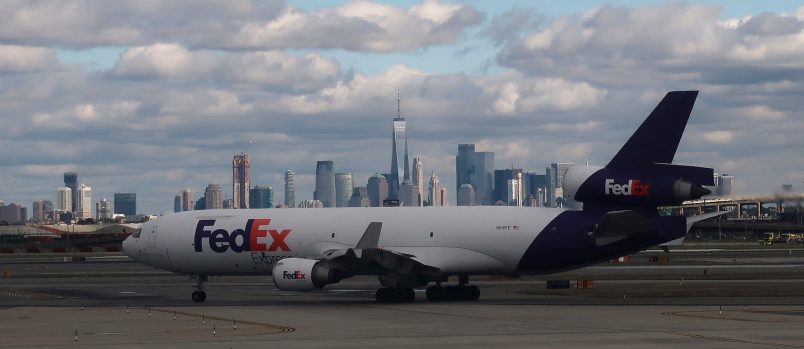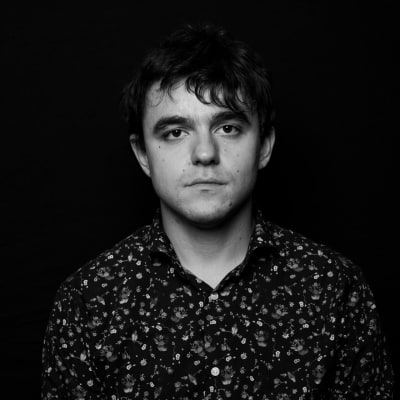As a shipment of millions of KN95 protective masks were on their way to New Jersey from China in early April, federal agents were hatching a plan.
The government deemed the mask shipment to be “critical supplies,” necessary for treating the COVID-19 crisis that was rapidly approaching its peak. HHS officials worked to get a Defense Production Act order which would give the government the authority to take possession of the materials.
But this story didn’t turn out to be one in which the federal government intervened to divert the shipment. Rather, it’s a story of chaos at every level of the supply chain and how despite the chaos the shipment of KN95 masks cleared hurdle after hurdle to make it to health care providers on the front lines.
The episode, and the confusion between different government and private actors, illustrates that even for federal authorities and importers trying to ferry in huge supplies of protective masks and sanitary gowns needed to protect frontline medical workers, it’s the wild west, with few rules and little clarity about what is happening.
The shipment left Hong Kong on April 3, bound for Newark-Liberty International Airport, as the COVID-19 pandemic was beginning to crest in the New York City area.
But it didn’t make it to the importer — and onwards to doctors and nurses — until April 7, as the federal government wrestled with whether or not to use its power to purchase the shipment and divert it. It was only after a seven-hour visit to the importer’s facility that the feds backed off.
The story of the shipment — which TPM has been tracking since early April — illustrates the chaotic assortment of obstacles that importers, purchasers, and the government itself faces as they struggle over a limited supply of PPE in an opaque market.
It also aligns closely with a widely circulated account published in the New England Journal of Medicine on Friday by Dr. Andrew Artenstein of Baystate Health, a hospital network in western Massachusetts. Artenstein told a harrowing tale in which first the FBI and then DHS nearly seized a much-needed PPE shipment that he was shepherding back to his hospital.
A FedEx flight brought the shipment of KN95 masks in question from Hong Kong to Newark, via Anchorage, on April 4, internal government emails and documents obtained by TPM show.
The shipment’s importer was a south New Jersey smartphone reseller called GlobalGeeks, customs data attached to the emails say.
Ahmad Loul, the company’s CEO, told TPM that his company had been able to secure the KN95 masks in part because their consumer electronics “remarketing” business had involved importing smartphones from China and reselling them in the U.S. That gave GlobalGeeks a preexisting network in China, he said, which helped the firm set up a KN95 mask supply chain, with the company paying the cool price of $1.6 million per FedEx flight to ferry them over.
“I saw Trump give an interview weeks ago where he encouraged entrepreneurs to get creative, and it encouraged us as a company,” Loul told TPM in a mid-April interview.
Loul confirmed to TPM that a FedEx tracking number which appeared in emails attached to the shipment was his.
Customs and Border Protection initially placed a hold on the shipment, after Health and Human Services “determined that the items were critical supplies,” the emails say, and after the Food and Drug Administration approved the shipment’s entry.
The FDA only began to allow the medical use of KN95 masks — approved in China and almost identical to the N95 masks that have long been certified for use in the U.S. — on April 3. Before that decision, the masks had been used in construction settings, but not for medical applications.
By April 6 — the Monday following the KN95 shipment’s arrival in Newark — the government was springing into action.
HHS Secretary Alex Azar signed a Defense Production Act order to obtain them, documents say. The Korean War-era law allows the government to issue “priority ratings,” putting the feds at the front of the line to buy items from a company, at a fair-market rate.
An HHS spokesperson confirmed this to TPM in an April 21 statement, but with a catch: the DPA order, while issued, was never fully enforced on GlobalGeeks.
“By utilizing the DPA, HHS is able to prevent hoarding or price gouging and ensure that PPE is going to the frontline healthcare workers who need it most. In coordination with the DOJ, HHS issued a DPA order for the GlobalGeeks KN95 order because this was a suspected case of price gouging and/or hoarding,” the statement reads.
“After verifying GlobalGeeks ordered the masks on behalf of healthcare providers, GlobalGeeks was directed to distribute the KN95 respirators purchased from China to the healthcare providers the company partnered with when placing the order. HHS made sure that critical supplies made it to the frontline without further delay.”
The account aligns with Loul’s description of a joint visit that the FBI made with Homeland Security to GlobalGeeks on April 7.
Loul told TPM in an April 8 interview that the FBI and DHS had spent seven hours at his offices the day before in order to “vet” that the masks were going to proper destinations, and to ensure that price-gouging and hoarding was not occurring.
He added that Baystate Health — the Massachusetts hospital firm — was a purchaser of the shipment, saying that a hospital executive got involved in convincing the government that the mask order was headed to a legitimate destination.
“We already had a purchase order from Baystate hospital,” Loul told TPM. “They had a private jet they flew over because they had over 200 patients they were not doing surgeries on because they had no masks.”
Andrew Artenstein, Baystate’s chief physician executive, wrote in the New England Journal of Medicine that he had secured a “large shipment” of three-ply face masks and KN95s.
Two FBI agents intercepted him while he was meeting with a broker to receive the masks, Artenstein wrote Friday, along with a team from Baystate that had been “flown to a small airport near an industrial warehouse in the mid-Atlantic region.”
Artenstein also said that Baystate’s local congressman — Rep. Richard Neal (D-MA) — interceded to prevent DHS from diverting the shipment.
Loul did not confirm that the NEJM account was the story of his shipment.
Reached at home on Saturday, Artenstein declined to comment. A Baystate Health representative told TPM that it does not comment on specific vendor relationships and declined to make Artenstein available for an interview. An FBI spokesperson told TPM that it neither confirms nor denies the existence of investigations.
But key details match up: Artenstein wrote that the FBI agents only left after he assured them “that the shipment of PPE was bound for hospitals.”
“After receiving my assurances and hearing about our health system’s urgent needs, the agents let the boxes of equipment be released and loaded into the trucks,” Artenstein wrote.
And, in a sign of confusion within the government, federal law enforcement continued to tell TPM that the GlobalGeeks episode was a potential price-gouging case and that the shipment had not been released to the company, even after the shipment had gone through GlobalGeeks and onwards to the purchasers.
Loul’s account of what happened, and his assertion this wasn’t a price gouging case, was supported by the statement HHS provided to TPM on Tuesday.
When the New York Times asked Artenstein from whom he had purchased the masks, he declined to comment, telling the paper that “he did not want to jeopardize his ability to work with the vendor again.”










